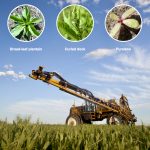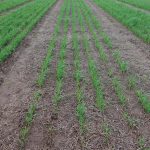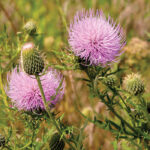
Tag Archives Herbicides

Weeds in fields quickly outpacing crops
Late seeding and weather challenges make a big challenge even bigger

Stocking up for a shortage-plagued spring
There’s a long list of ag products under supply strain while one of farming’s busiest seasons is about to ramp up

Pre-emergent products require care
These older formulations are effective but come with some risks too

Comment: Doubling down won’t solve weed woes
Dicamba was supposed to solve weed problems – instead, it’s making farming harder

Spray is scarce. Here’s how you can make it stretch
With a looming chemical shortage, it’s going to be important to do more with less this spring

Management interference flagged in Environmental Protection Agency’s dicamba decision
Office of inspector general says decision ran counter to EPA’s Scientific Integrity Policy

Keep It Clean enters its fifth year
Industry program helps avoid residue problems on exported crops

Former weed specialist back on the job
Battling weed resistance will be hard work, says Kim Brown-Livingston
Comment: Glyphosate and livestock. It’s all in the dose
Studies have found no effect on digestive bacteria or nutrient uptake

Frosty weeds and closing spray windows
Variables like weed species and recent and expected frosts will weigh into management decisions




